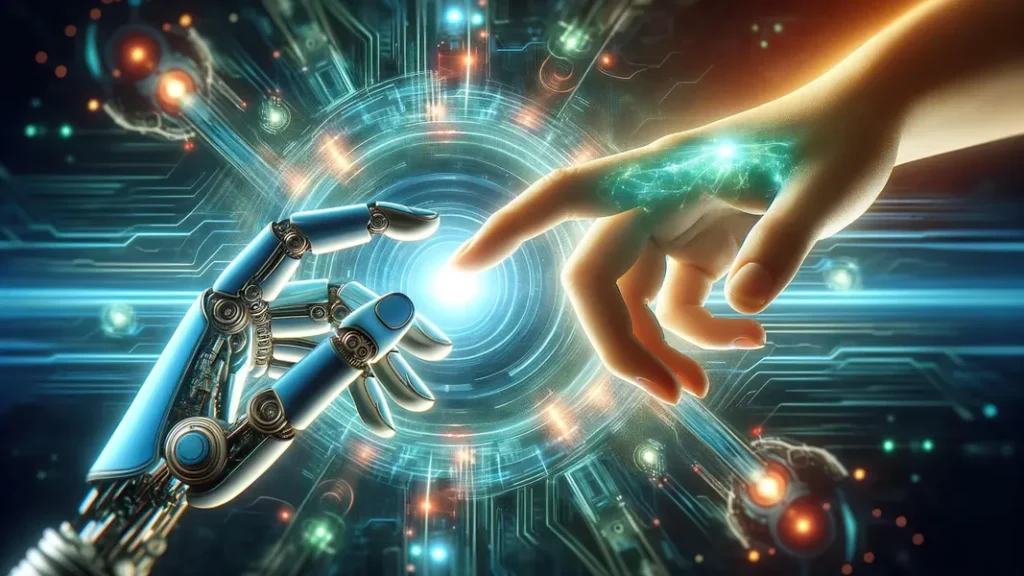The Acceleration of AI Development
The rapid evolution of artificial intelligence is transforming industries, economies, and everyday life at an unprecedented pace. While tech giants such as Google continue to refine their AI capabilities, the global landscape is shifting as nations and corporations race to harness the power of machine learning, automation, and data-driven decision-making. The integration of AI into various sectors is creating opportunities and challenges, raising questions about ethics, employment, and the future of human interaction with technology.
AI in the Workforce: Automation and Job Evolution
One of the most significant impacts of AI is on the workforce. Automation has already revolutionized industries such as manufacturing, logistics, and finance, where machines can perform repetitive tasks with greater efficiency than humans. However, the influence of AI is now expanding into creative fields, healthcare, and even legal professions, challenging the notion that only manual labor is at risk of being replaced.
The Changing Nature of Jobs
While some fear job displacement due to AI-driven automation, others argue that it will lead to the creation of new roles that require advanced problem-solving and technical expertise. Companies are investing in retraining programs to help employees adapt to AI-driven work environments, ensuring that human creativity and strategic thinking remain integral to industries. The shift from traditional roles to AI-augmented positions signals a transformation rather than a complete replacement of human labor.

The Ethical Debate on AI Decision-Making
As artificial intelligence assumes greater responsibility in decision-making processes, ethical concerns arise regarding transparency, bias, and accountability. Algorithms trained on historical data may inadvertently reinforce societal biases, leading to discriminatory outcomes in hiring, lending, and law enforcement. The call for ethical AI development has led to regulatory discussions worldwide, with policymakers striving to balance innovation with fairness.
AI in Healthcare: Revolutionizing Medicine and Patient Care
The healthcare industry has witnessed groundbreaking advancements through AI applications, from early disease detection to personalized treatment plans. Medical professionals increasingly rely on machine learning algorithms to analyze vast datasets, uncovering patterns that might be imperceptible to the human eye.
AI-Assisted Diagnosis and Treatment
Medical imaging, pathology, and genetic research have benefited immensely from AI-driven tools. Algorithms can rapidly detect anomalies in X-rays, MRIs, and CT scans, significantly reducing diagnostic errors and enabling early intervention. Moreover, AI-powered drug discovery is accelerating the development of new treatments, with pharmaceutical companies leveraging predictive models to identify promising compounds.
The Human-AI Collaboration in Medicine
Despite AI’s growing role in healthcare, human expertise remains indispensable. Doctors, nurses, and medical researchers work alongside AI to enhance patient care rather than replace human judgment. The synergy between technology and human intuition fosters more accurate diagnoses, improved treatment plans, and a patient-centered approach to medicine.
AI in the Creative World: Redefining Art, Music, and Literature
Creativity has long been considered a uniquely human trait, but artificial intelligence is challenging this notion. AI-generated artwork, music compositions, and even literature are gaining recognition, blurring the line between human and machine creativity.
AI-Generated Art and Music
Programs such as neural networks and deep learning algorithms can produce visual art that mimics human styles or creates entirely new aesthetics. AI-generated music is similarly evolving, with compositions that range from classical symphonies to modern electronic beats. While some artists embrace AI as a collaborative tool, others express concerns about the originality and authorship of machine-generated works.
The Future of AI in Literature
Natural language processing (NLP) models have advanced to the point where AI can generate coherent narratives, poetry, and news articles. While AI-generated text lacks the depth of human emotion, it is increasingly being used in journalism, content creation, and even screenwriting. The question of whether AI can truly understand and convey human experiences remains open for debate.
The Role of AI in Global Security and Surveillance
Governments and private entities are leveraging AI for security purposes, enhancing surveillance capabilities, cybersecurity measures, and military strategies. While AI-driven security technologies promise increased safety, they also raise concerns about privacy and civil liberties.
AI in Law Enforcement and Surveillance
Facial recognition technology and predictive policing algorithms are being deployed in various countries to monitor public spaces and detect potential threats. However, these systems have faced criticism for inaccuracies and the potential for abuse, sparking debates on ethical surveillance and the need for regulation.
Cybersecurity and AI Warfare
As cyber threats become more sophisticated, AI-driven security solutions are crucial in detecting and preventing attacks. Governments and corporations are investing in AI-powered cybersecurity tools to identify vulnerabilities and respond to breaches in real-time. Additionally, AI’s role in modern warfare is evolving, with autonomous drones and defense systems raising ethical concerns about the future of military engagement.
AI and the Future: Navigating a Technological Revolution
As artificial intelligence continues to advance, society faces critical choices regarding its integration, regulation, and ethical implications. The balance between technological progress and human values will shape the future, influencing everything from employment to privacy and creative expression.
The global AI landscape is evolving rapidly, driven by research, innovation, and competition. While the possibilities are vast, the challenges are equally complex, requiring a collaborative effort between governments, businesses, and individuals to ensure that AI serves humanity rather than disrupts it.
